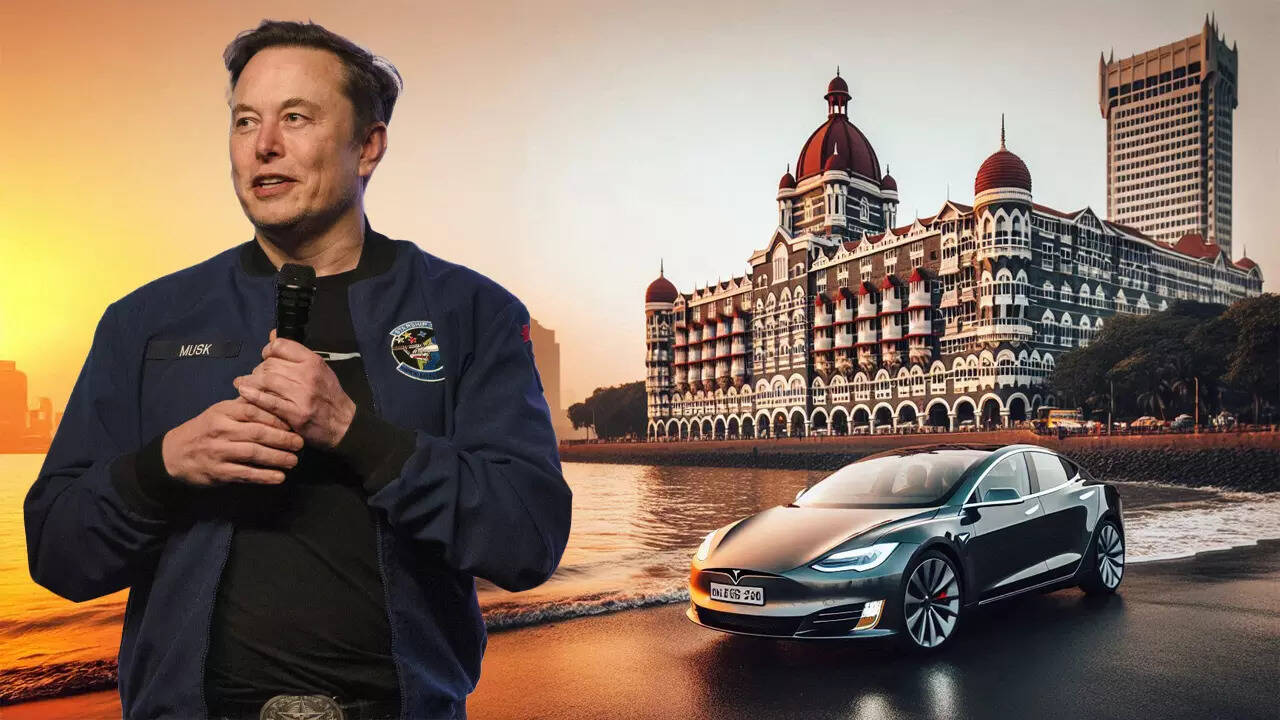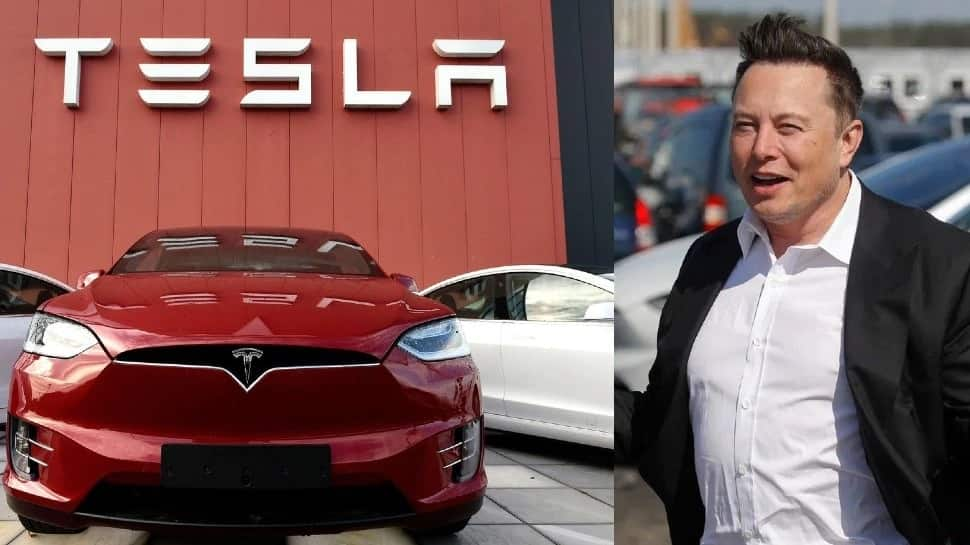Elon Musk, the visionary entrepreneur behind Tesla, has once again made headlines with the opening of the electric vehicle (EV) giant’s first and most spectacular showroom in India, located in Mumbai’s upscale Bandra Kurla Complex (BKC) at Maker Maxity Mall. This milestone marks Tesla’s long-awaited entry into the world’s third-largest automotive market, signaling Musk’s continued ambition to expand his global footprint amid challenges in other major markets like the U.S. and China.
A Grand Launch in Mumbai
The Tesla “Experience Center,” as the company calls its 4,000-square-foot showroom, was inaugurated on July 15, 2025, in the presence of Maharashtra Chief Minister Devendra Fadnavis. The minimalist, futuristic showroom, designed by Nita Sarda of Trident Interiors, showcases two Tesla Model Y vehicles, with the Model 3 also expected to be displayed later this year. The launch event, attended by media and VIPs, highlighted Tesla’s commitment to establishing a robust ecosystem in India, including plans for a proprietary Supercharger network and wall connector units.

“This is not just the inauguration of an experience center but a statement that Tesla has arrived in the right city and state, Mumbai,” said Chief Minister Fadnavis, emphasizing the significance of the launch for India’s financial capital. Tesla’s regional director, Isabel Fan, echoed this sentiment, stating, “We are here to create the ecosystem, to invest in the necessary infrastructure, including the charging infrastructure.”
Tesla’s Model Y: A Premium Offering
The star of the Mumbai showroom is the Tesla Model Y, the world’s best-selling electric vehicle, available in rear-wheel drive (RWD) and long-range RWD variants. Priced at ₹59.89 lakh (approximately $68,000) for the RWD model and ₹67.89 lakh (approximately $79,000) for the long-range version, the Model Y targets India’s niche premium EV segment, competing with luxury brands like BMW, Mercedes-Benz, and Kia. A full self-driving add-on is also offered for ₹6 lakh (approximately $7,000). However, high import duties of up to 70% have significantly increased prices compared to other markets, where the Model Y retails for $44,990 in the U.S. and $36,700 in China.

Despite the steep price tag, which may put Tesla out of reach for most Indian consumers, analysts see the move as a strategic bet on the growing demand for premium electric vehicles in India. “Tesla’s arrival may not significantly impact overall battery electric vehicle sales in India, but it could attract demand from consumers interested in luxury brands like BMW and Audi,” said Kwan Wongwetsawat, a senior auto analyst at GlobalData.
Strategic Expansion Amid Global Challenges
Tesla’s entry into India comes at a critical time for the company, which has faced declining sales in its core markets. In the second quarter of 2025, Tesla’s global sales dropped by 13% to 443,956 units, with a 6.3% decline in the U.S. and a nearly 12% drop in China. In Europe, sales fell by 28% year-over-year in May, partly due to consumer backlash over Musk’s political views and growing competition from Chinese EV makers like BYD. India, with its rapidly expanding EV market and government target of 30% EV adoption by 2030, offers a fresh opportunity for Tesla to offset these losses.

The Mumbai showroom is just the beginning of Tesla’s Indian journey. The company plans to open a second showroom in New Delhi by late July and establish four charging stations in both Mumbai and Delhi, with 16 Superchargers spread across key locations like Thane, Lower Parel, Navi Mumbai, Aerocity, Saket, and Noida. These V4 Superchargers can power a Tesla for a 267-km range in just 15 minutes, addressing concerns about charging infrastructure in India’s nascent EV market, which accounted for only 2.5% of total vehicle sales in 2024.
Overcoming Policy Hurdles
Tesla’s entry into India has been years in the making, marked by delays due to high import tariffs and disagreements over local manufacturing. Musk has long criticized India’s import duties, which he called “the highest in the world by far of any large country.” A breakthrough came after a meeting between Musk and Prime Minister Narendra Modi in February 2025, followed by India’s policy shift to reduce customs duties on high-end cars priced above $40,000 from 110% to 70%. This change, along with Tesla’s decision to import vehicles from its Shanghai factory, paved the way for the Mumbai launch.

However, Tesla has made it clear that it is not interested in local manufacturing at this stage, focusing solely on retail and infrastructure development. Union Heavy Industries Minister H.D. Kumaraswamy confirmed last month that Tesla’s primary interest lies in opening showrooms, unlike other global automakers like Hyundai, Mercedes-Benz, and Kia, which have expressed willingness to establish manufacturing units in India.
A Broader Vision for India
Beyond Tesla, Musk’s ambitions in India extend to his satellite internet venture, Starlink, which recently cleared a final regulatory hurdle to begin commercial operations. This dual success for Musk’s companies underscores his commitment to tapping into India’s fast-growing consumer base. The Mumbai showroom, strategically located near Apple’s flagship store in BKC, positions Tesla as a premium brand in a market where EVs are gaining traction, albeit slowly.
While Tesla’s high prices may limit its initial sales—projected at 500-700 units in the first few months, tapering to 200-300 units per month—the launch signals rising investor confidence in India’s clean mobility push. As the country aims to increase its EV market share to 30% by 2030, Tesla’s spectacular Mumbai store could pave the way for further expansion, setting the stage for Musk’s vision of a sustainable future in one of the world’s most dynamic markets.





